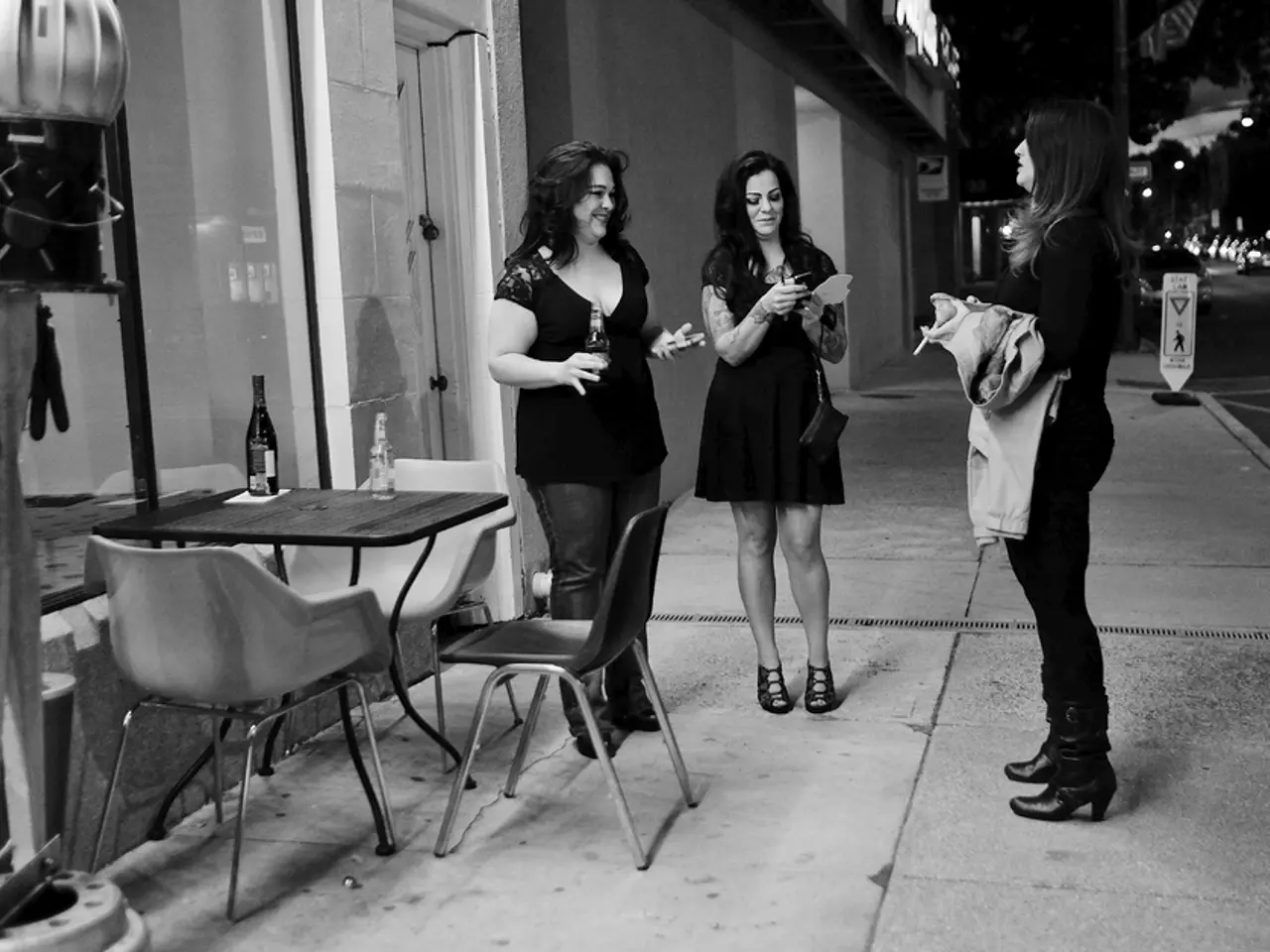Three Women Journey Along the Portuguese Coastal Camino, From Baiona to Santiago
Three Indian Women Conquer the Portuguese Coastal Camino de Santiago
Three intrepid women set off on an extraordinary journey, embarking on the El Camino de Santiago, a centuries-old pilgrimage across Europe. Their destination: Santiago de Compostela, the city built for Saint James' relics, uniting all routes that end at his alleged resting place.
The women chose the Portuguese Coastal Route for its balance of weather and for the spiritual and mental healing it provided. They began their journey in the serene fishing village of Baiona, Spain, and passed through a series of picturesque towns: Vigo, Redondela, Pontevedra, Caldas de Reis, and Padrón.
Pontevedra, a car-free city with cobbled streets, churches, spires, and estuaries, was a highlight of their journey. The women also found charm in Padrón, home to ancient cemeteries, poetic heritage, and a literary legacy including Rosalía de Castro and Camilo José Cela.
However, their journey was not without its trials. A storm with gusty winds and rain tested their resolve, but they pressed on, undeterred. They faced challenges such as Google Maps failures and invisible yellow arrows along the trail, but their determination never wavered.
In Padrón, they encountered an unexpected friend in a Swiss-German named Pascal who had walked 15 km the wrong way. They also crossed paths with a mischievous horse that stole an apple from one of the women.
The final 22 km of their journey led them to Santiago de Compostela. Upon arrival, they lit candles, sent prayers, and claimed their Compostela certificates at the Pilgrim Office.
The women planned their journey a year in advance, training daily with knapsacks and booking their luggage transfers with Natural Adventures. They stayed at Pension Rua Do Medio in Redondela and enjoyed the hot springs and Roman thermal fountains of Caldas de Reis.
For female solo travelers on the Camino de Santiago, the best route is generally the Camino Francés, known for its support infrastructure, well-marked path, and community of fellow pilgrims. However, the Portuguese Coastal Way, which the women chose, is considered among the safest routes and offers a less crowded but still well-organized pilgrimage experience along the coast of northern Portugal and Spain.
Preparation tips for solo female pilgrims include packing light and comfortable clothing and good walking shoes, preparing physically with training walks, carrying basic first-aid items like blister prevention products, and maintaining regular communication with family or friends for safety.
The women's journey serves as an inspiration for those seeking adventure, spiritual growth, and personal challenge. Their successful completion of the Portuguese Coastal Camino de Santiago is a testament to their courage, resilience, and determination.
[1] Lonely Planet. (2021). Camino de Santiago. [online] Available at: https://www.lonelyplanet.com/spain/northwest-spain/camino-de-santiago
[2] Camino de Santiago Forum. (2021). Portuguese Coastal Way. [online] Available at: https://www.caminodesantiago.me/portuguese-coastal-way
[3] The Guardian. (2018). The Camino de Santiago: the ultimate guide to walking the Camino Francés. [online] Available at: https://www.theguardian.com/travel/2018/apr/25/camino-de-santiago-the-ultimate-guide-to-walking-the-camino-frances
[4] Camino de Santiago. (2021). Safety Tips for Solo Female Pilgrims. [online] Available at: https://www.caminodesantiago.me/safety-tips-for-solo-female-pilgrims
During their journey on the Portuguese Coastal Way of the Camino de Santiago, these women integrated periods of physical activity with exploration of health-and-wellness practices, finding personal healing in the adventure. Upon arriving at Santiago de Compostela, they embraced spiritual rituals, symbolizing their triumph over personal challenges.
In their quest for a balanced lifestyle, these travelers opted for the Portuguese Coastal Route, a path accompanied by stunning seaside landscapes and social opportunities, offering a unique blend of travel, science, and lifestyle exploration.




